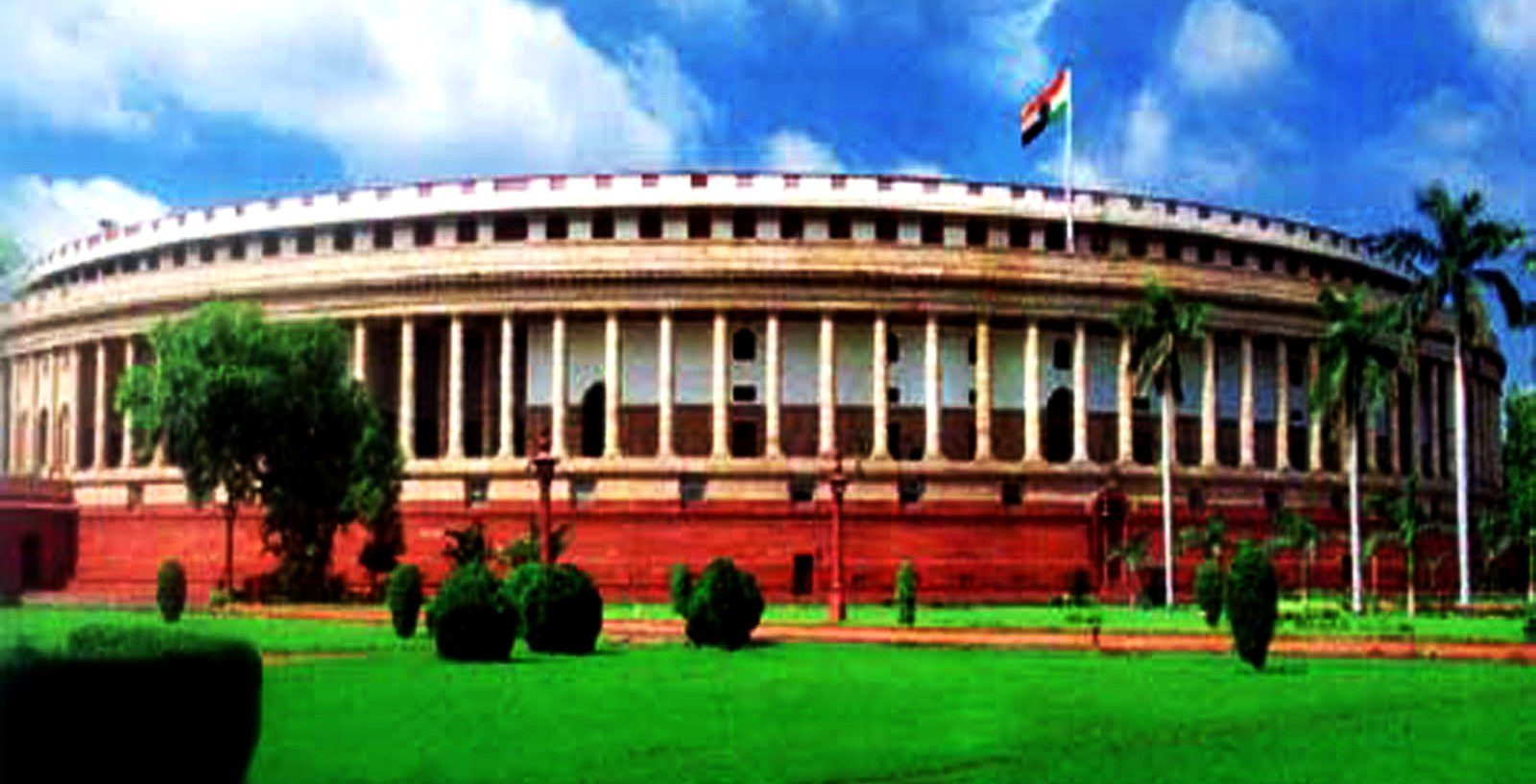Reading Time: 4 minutes
There are thirteen bills listed for Parliament’s monsoon session. Apart, there are six ordinances which will be replaced in the form of bills. Among the pending bills, there are three bills of immediate interests to the trade unions of the country. A report, for Different Truths.
The monsoon session of Parliament beginning July 18 is set to witness fierce battle between the NDA-government led by the Prime Minister Narendra Modi on a number of key policies including labour issues, especially the centre’s bid for privatisation of the public sector companies including the banks. The coming election battle has surcharged the atmosphere and in all probability, the opposition led by the Congress, will make the normal functioning of the Parliament difficult due to their strong opposition to some of the bills to be put for discussions in the two houses.
There are thirteen bills listed for Parliament’s monsoon session. Apart, there are six ordinances which will be replaced in the form of bills. Among the pending bills, there are three bills of immediate interests to the trade unions of the country. These are the Code of Wages Bill, the Factories (Amendment) Bill and the Contract Labour (Amendment) Bill. Also among the ordinances to be tabled, the Fugitive Economic Offenders Ordinance and Insolvency and Bankruptcy Code (Amendment) Ordinance are of special interests to the trade unions.
At the political level, the Congress and the opposition parties, especially the Left, will challenge the centre and the BJP led state governments for their gross failure in maintaining law and order and in protecting the minorities. The utterances of the senior BJP leaders are leading to hate campaign and have led to large number of incidents of communal violence. The opposition is expected to launch fierce attack on the centre and especially the BJP as a party for its indulgence to the vigilante groups of the Sangh Parivar, who are taking the law into their own hands and disturbing communal peace and harmony.
For the trade unions and the civil society activists, the session is of crucial importance. Jan Manch, a civil society group is holding a rally in Delhi on July 18 opposing proposed amendments to the RTI Act and demanding immediate operationalisation of anti-corruption laws. The Manch has organized a national campaign for people’s right to information in collaboration with various campaign groups including National Alliance of People’s Movements and National Federation of Indian Women, The Jan Manch says that BJP came to power on the plank of corruption free India but in the last four years, the Modi regime has been attacking the institutions and the legislations of transparency and accountability.
Both Jan Manch and the trade unions feel that the pending Contract Labour (Amendment) Bill legalises indiscriminate use of contract labour and dumps even the Contract Labour(Regulation and Abolition) Act which offers some minimal protection The AITUC has decided to organize its action programme coinciding with the monsoon session of Parliament. Its nationwide 40-day programme starts on August 9 and the central TU will coordinate with the other thus and the civil society activists to launch massive mobilization of the working class against the present economic policies of the Modi government.
According to the AITUC, in India, 25 percent of the population is between 19 to 29 years of age and they will experience unemployment rate of 34 percent by 2022, as per the data compiled by the labour bureau of the Government of India. This is a precarious situation for the young Indians in the job market. But the Modi government is giving inflated figures about job growth and refusing to adopt a viable programme for generating jobs. Another central trade union, CITU, along with All India Kisan Sabha and ALL India Agricultural Workers Union have decided to organize a massive Mazdoor Kisan Sangharsh rally before Parliament on September 5 against the anti worker polices of the Government.
As the CITU sees it, the government is on a privatisation spree. Not only the public sector undertakings including those in strategic sectors like defence, insurance etc, but all essential services like health, education, transport are being privatized. Education and health are increasingly becoming the preserve of the rich. National interests are being sacrificed to favour the multinational companies. CITU says that the policies of the Modi government are totally against the interests of the workers and the peasants. So the September 5 rally is to demand the reversal of these policies.
The Left parties – the CPI and the CPI-M are expected to grill the Government on the issue of persuading the LIC to take over the management of the ailing IDBI. Already the banking sector is in a mess due to the huge defaults by the industrialists and now, the profitable LIC is being used to bail out the ailing bank IDBI which fell sick due the corrupt practices resorted to by both bank managements and the big industrial borrowers. The CPI has urged the finance ministry to submit a white paper on the affairs of the LIC and confiscate the properties of the major defaulters without any delay.
That way, there is very little scope of collaboration between the Modi government and the opposition on the crucial issues of economic policies which will come up for discussion following the presentation of the bills .Prime Minister Narendra Modi is in a election mode and he is continuing with his personal attacks against the Congress president Rahul Gandhi. With only ten months left before the scheduled general elections in April/May 2019, no party is in a position to give political space to the other. Naturally all indications suggest at another washout of the monsoon session.
Nitya Chakraborty
©IPA service
Photo from the Internet















